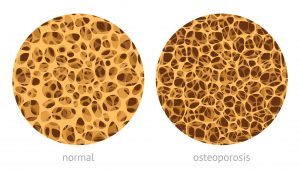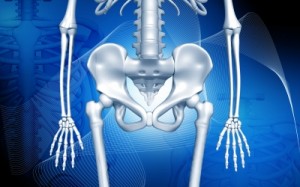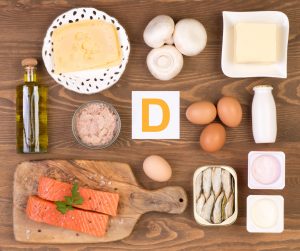 Vitamin D, known as the sunshine vitamin, is a very important nutrient for overall health. Best known for its work in helping strengthen bones and teeth, vitamin D is starting to get more attention for other benefits it could provide. A recent study reports that cells damaged by heart attack or stroke may be repaired by vitamin D3.
Vitamin D, known as the sunshine vitamin, is a very important nutrient for overall health. Best known for its work in helping strengthen bones and teeth, vitamin D is starting to get more attention for other benefits it could provide. A recent study reports that cells damaged by heart attack or stroke may be repaired by vitamin D3.
What is vitamin D?
Vitamin D is a fat-soluble vitamin that you can not find in many foods. However, vitamin D is important for many functions such as bone health. It is called the ‘sunshine vitamin” by some because it can be absorbed into the body through sunlight exposure. Because of this, those who live in cloudy climates or do not leave the house often may be low in vitamin D. You can find Vitamin D in such foods as fortified milk, yogurt, or orange juice, as well as fatty fish such as salmon or trout. Cod liver oil is also a good source of vitamin D.
Most adults should get at least 600 International Units (IU) of vitamin D each day. Vitamin D is not a standard lab you will get at your annual visit. Therefore, you may have to ask for the vitamin D lab. You will be prescribed a vitamin D supplement if labs find you to be low. Research shows that vitamin D3 is absorbed better than vitamin D2, so it is the preferred choice for a supplement. You can find Vitamin D3 in a variety of forms such as:
- small softgel form
- liquid drops
- absorbable creams such as Maxasorb by Vita Sciences
Maxasorb comes in 1000 IU and 2000 IU formulas and can be conveniently rubbed on the skin like a lotion.
Endothelial cells and vitamin D3
An innovative study tracked single endothelial cells, or blood vessel cells, to see the impact of vitamin D3 on their health status. Heart health events such as heart attack or stroke as well as conditions such as diabetes or high blood pressure can damage such cells. The study showed that vitamin D3 helped such cells repair themselves from such damage. Also, the study found that the vitamin lowers oxidative stress in the cardiovascular system by stimulating nitric oxide (NO) levels. This turn of events increases blood flow and protects the blood vessels from damage. Recent findings also show that a deficiency of vitamin may increase risk of a heart attack and may reveal a link to depression. Therefore, taking a vitamin D3 supplement may greatly benefit many aspects of health.
Other ways to improve your heart health
Although vitamin D is important, there are many other ways you can improve your heart health.
- Eat plenty of fruit and vegetables since such foods are rich in fiber. A fiber-filled diet is good for digestive health, keeps you fuller longer, and in turn can help you maintain a healthy weight. A fiber rich diet can also help you control blood glucose levels and keep cholesterol at healthy levels.
- Stay active often at least 15 to 30 minutes a day most days of the week. No need to be in a boot camp exercise program. Engage in simple exercises such as walking, water aerobics, gardening, dancing, to name a few to help keep your heart healthy.
- Drink more water and less alcohol to not only help manage your weight, but also to stay hydrated and keep your liver healthy as well.
- Don’t smoke or quit smoking since this unhealthy behavior can constrict blood vessels and in turn increase blood pressure levels.
- Maintain a healthy weight by performing all of the healthy lifestyle behaviors mentioned above since less body weight places less pressure on your heart, and in turn can help lower your risk of heart disease and related conditions.
-written by Staci Gulbin, MS, MEd, RD, LDN
Sources:
DiSalvo, D. (January 31, 2018) “Study Examines Vitamin D3’s Potential Effects On Blood Vessels.” Forbes.com
National Institutes of Health: Office of Dietary Supplements (February 11, 2016) “Vitamin D”
Tripkovic, Laura et al. (June 2012) “Comparison of Vitamin D2 and Vitamin D3Supplementation in Raising Serum 25-Hydroxyvitamin D Status: A Systematic Review and Meta-Analysis.” The American Journal of Clinical Nutrition 95.6 (2012): 1357–1364. PMC. Web. 5 Feb. 2018.
 Do you get stabbing abdominal cramps after eating a fatty meal? Does dairy or gluten cause uncomfortable gas and bloating? Are doctors unsure of the origin of your chronic constipation or diarrhea? If you answered yes to any of these questions, then you may have what is called Irritable Bowel Syndrome (IBS). Although changes in the diet may be helpful in many cases of IBS, research shows that vitamin D may also help those with this condition.
Do you get stabbing abdominal cramps after eating a fatty meal? Does dairy or gluten cause uncomfortable gas and bloating? Are doctors unsure of the origin of your chronic constipation or diarrhea? If you answered yes to any of these questions, then you may have what is called Irritable Bowel Syndrome (IBS). Although changes in the diet may be helpful in many cases of IBS, research shows that vitamin D may also help those with this condition. Are you looking for a more natural way to deal with your rheumatoid arthritis pain? Some prescription medicines may make you feel foggy, cause stomach ulcers, or cause weight gain. However, recent studies have shown that more natural antioxidants may help reduce rheumatoid arthritis pain without so many side effects.
Are you looking for a more natural way to deal with your rheumatoid arthritis pain? Some prescription medicines may make you feel foggy, cause stomach ulcers, or cause weight gain. However, recent studies have shown that more natural antioxidants may help reduce rheumatoid arthritis pain without so many side effects. A journal article in the Frontiers in Nutrition suggested that fiber-rich and antioxidant-rich foods may decrease inflammation in those with RA. Furthermore, it was suggested to get such benefits from some of the following foods and drinks.
A journal article in the Frontiers in Nutrition suggested that fiber-rich and antioxidant-rich foods may decrease inflammation in those with RA. Furthermore, it was suggested to get such benefits from some of the following foods and drinks.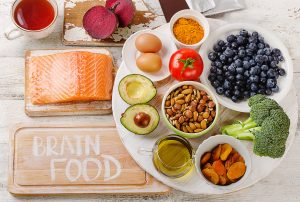 When you hear about brain health, you may think of lowering stress and anxiety. However, having a healthy brain also involves reducing risk of stroke as well as memory conditions like Alzheimer’s and dementia. A recent report has found that keeping your body healthy is vital to keeping your brain healthy.
When you hear about brain health, you may think of lowering stress and anxiety. However, having a healthy brain also involves reducing risk of stroke as well as memory conditions like Alzheimer’s and dementia. A recent report has found that keeping your body healthy is vital to keeping your brain healthy. However, research shows that yoga can soothe back pain as well as physical therapy.
However, research shows that yoga can soothe back pain as well as physical therapy.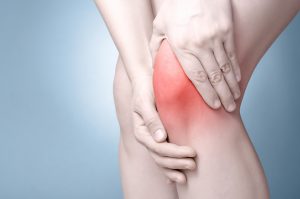 condition include:
condition include:
